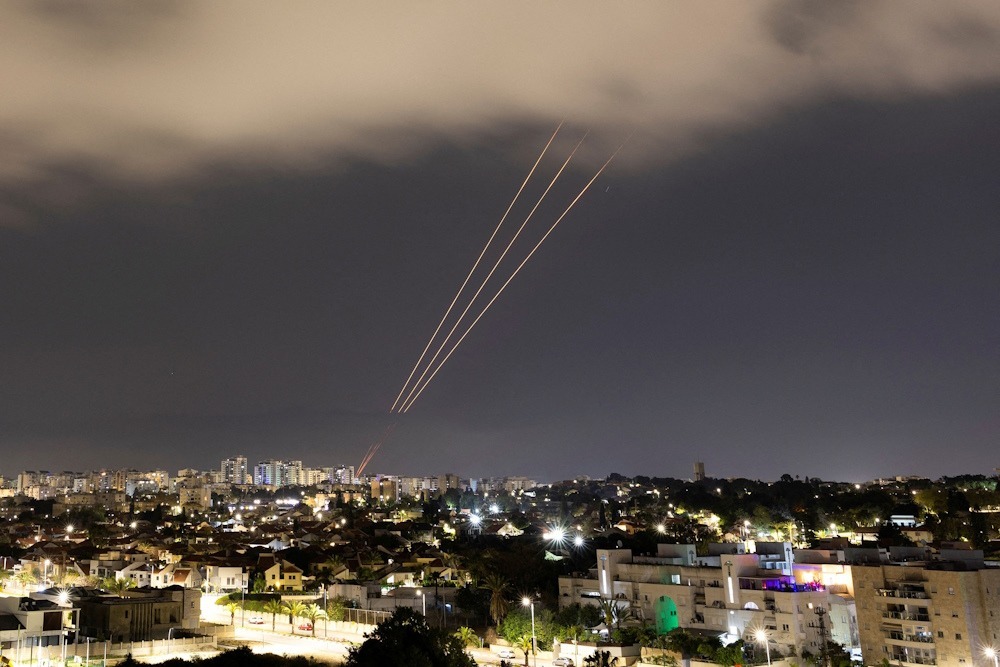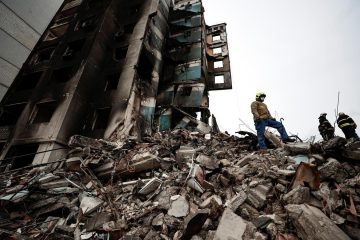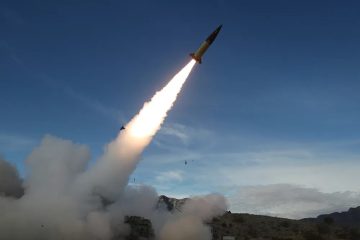Iran targets Israel with drones

In an unprecedented act of retaliation, Iran launched many missiles from its borders towards Israel, further exacerbating the already volatile situation in the Middle East.
Israel’s military reported that the majority of missiles were successfully intercepted by aerial defense systems outside the country’s borders. Israel’s emergency department has reported no injuries resulting directly from Iranian strikes.
The Iranian foreign ministry stated that the bombing was a response to a lethal Israeli assault on the Iranian consulate in Damascus, Syria, which occurred earlier this month.
According to two US officials, air defense systems in the Middle East successfully intercepted several Iranian drones. During a meeting with his national security team in Washington on Saturday, US President Joe Biden expressed on social media that the US is firmly committed to ensuring Israel’s security in the face of Iranian threats.
On Saturday, Iran sent numerous unmanned aerial vehicles (UAVs) towards Israel in response to an Israeli assault on the Iranian embassy compound in Syria earlier this month.
Adrienne Watson, spokesman for the US National Security Council, stated that the strike is expected to occur gradually over several hours.
We are monitoring the potential danger in the airspace. According to Israel Defense Forces spokesperson Daniel Hagari, a threat is expected to reach Israel in few hours. Hagari urged Israelis to remain alert.
Currently, a war cabinet meeting is being held at the headquarters of the Israeli Defense Forces (IDF), as reported by the office of Israeli Prime Minister Benjamin Netanyahu.
According to a statement made by Netanyahu on Saturday, Israel has made prior preparations for the attack. Prior to the event, the nation has enhanced its defensive and offensive capacities in multiple areas, including as land, air, sea, and intelligence, as stated by Israeli Minister of Defense Yoav Gallant. According to officials, Israel, along with Jordan, Iraq, and Lebanon, has temporarily shut down their airspace in response to the strikes. Additionally, two US officials have stated that the United States intends to intercept any weapons aimed against Israel, provided that it is possible to do so. This demonstrates the extent of the continuous collaboration between the two military forces.
In recent weeks, an aerial attack obliterated Iran’s diplomatic office in Damascus, Syria, resulting in the deaths of seven high-ranking officials from the Islamic Revolutionary Guard Corps, as confirmed by Iranian authorities and state-affiliated media outlets. The foreign ministries of Iran and Syria said that Israel was responsible for orchestrating the strike. Iran pledged to respond with vengeance.
President Joe Biden promptly returned to the White House on Saturday, cutting short his trip to Delaware in order to convene a meeting with his national security team. Anticipated attendees at the summit include US Secretary of State Antony Blinken, Defense Secretary Lloyd Austin, and Chairman of the Joint Chiefs of Staff Gen. CQ Brown.
According to two individuals knowledgeable about US intelligence, the United States has detected Iran’s internal movement of military equipment, including drones and cruise missiles, indicating its readiness to launch an attack on Israeli targets from within its own territory.
The Iranian Revolutionary Guards conducted a helicopter operation on Saturday near the Strait of Hormuz, seizing a container ship with 25 crew members on board that had links to Israel, as reported by the state news agency IRNA. The White House expressed strong disapproval of the seizure, while the Portuguese government stated that it was in communication with Iranian authorities on Saturday morning.
European authorities have cautioned against any more intensification of tensions between Israel and Iran. On Friday, Biden delivered a strong and unequivocal public admonition, conveying a clear message to Tehran: “Do not.” Furthermore, France, India, Germany, and Canada are advising their nationals to refrain from traveling to Iran, Lebanon, Israel, and the occupied Palestinian territories because to the escalated regional tensions.
Iran’s regional allies have engaged in clashes with Israel in support of the Palestinians in Gaza. Since the start of the war in Gaza, Iran’s proxies have launched strikes on Israel and its supporters, while also calling for a truce in the Palestinian enclave.
The onset of a state-on-state fight between Iran and Israel signifies a significant intensification in the area – a situation that the US has been striving to prevent since the commencement of the Israel-Hamas war in October.



